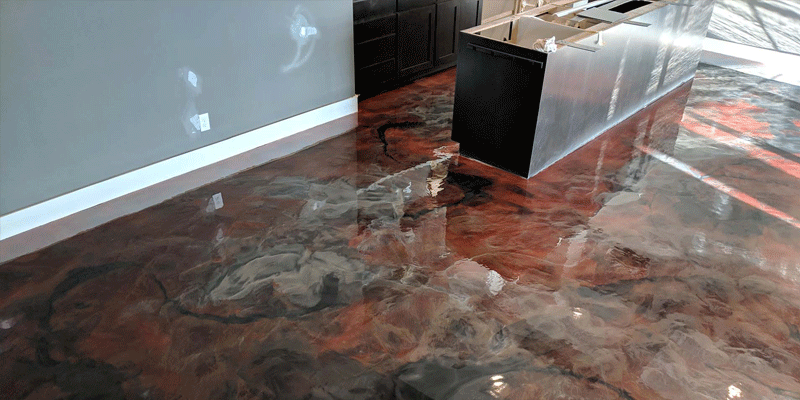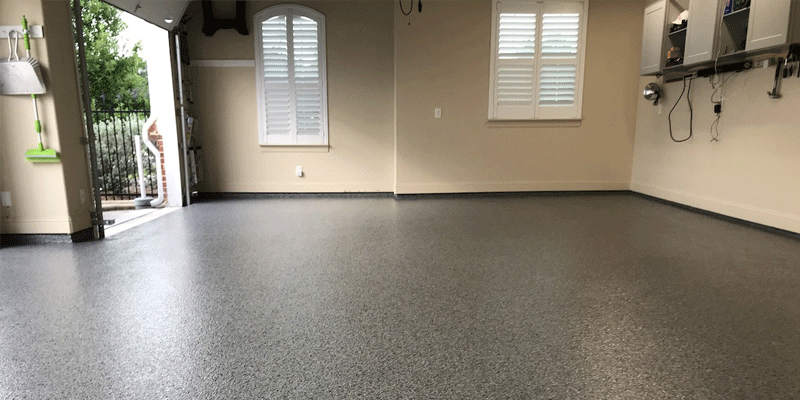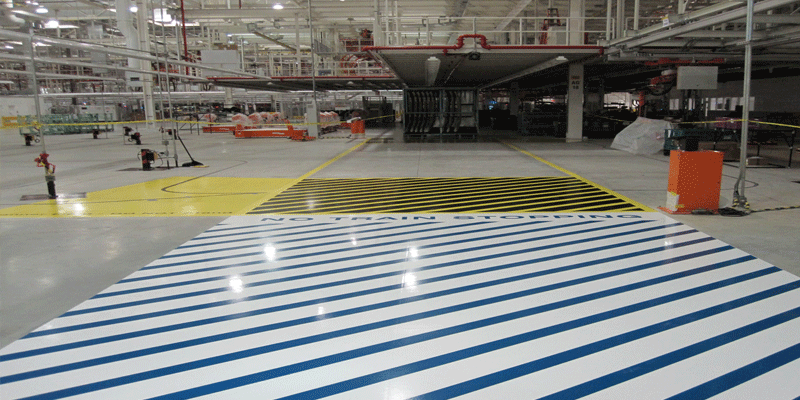Table of Contents
Coatings Used? Learn the Facts

Is your concrete floor looking a little dull and drab? Do you have an area of your home or business that needs extra protection from wear and tear? If so, epoxy flooring may be the perfect solution for you.
However, many property owners are completely unaware of the benefits that epoxy floors can offer. Epoxy flooring is not just for industrial settings or garages; this type of flooring can be used in various settings.
This article will take a closer look at some of the most common uses for epoxy coatings. By the end, you should have a much better understanding of whether or not epoxy floors are right for your needs.
What is Epoxy?
Before we dive into the many uses for epoxy floors, it is important to first understand what epoxy is. Epoxy is a type of thermosetting plastic that is commonly used as an adhesive or sealant.
This material is created by combining two smaller molecules, known as monomers, to form a larger molecule. Once these monomers have been combined, they can no longer be separated without causing damage to the overall structure.
Epoxy coatings are created by adding filler materials to this base compound. These fillers can be anything from sand to metal shavings. The type of filler material used will depend on the desired result.
For example, epoxy flooring that will be used in a commercial kitchen will likely have metal shavings added to increase its durability. On the other hand, an epoxy floor that will be used in a factory with heavy equipment might have sand or fine gravel for extra traction.
Now that you understand what epoxy is and how it is created, let’s take a closer look at some of the most common uses for this durable material.
Garage Flooring

One of the most common uses for epoxy coatings is on garage floors. Garages can often experience heavy wear and tear from oil spills, vehicle traffic, and exposure to extreme temperatures. Epoxy flooring can help protect your concrete floor by adding a layer of durable protection.
Commercial Kitchens
Another setting where epoxy flooring can be extremely beneficial in commercial kitchens. These locations often require extra protection against spills, grease, and moisture to prevent the spread of bacteria.
Industrial Work Spaces

Industrial workspaces also commonly use epoxy flooring for many reasons. First, this type of flooring is incredibly durable and resistant to chemical damage from harsh chemicals or materials that may spill on the surface. Second, it provides increased traction for workers walking across the space regularly. And finally, it helps create a clean appearance that keeps your company looking professional.
Basement Flooring
Another one of the newer uses for epoxy flooring is in residential basements. Many homeowners are looking to use this type of flooring as an alternative to traditional concrete or tiles because it can provide extra protection against moisture and even flooding. However, it is important to note that epoxy floors may not be suitable for every basement setting.
Hotels and Retail Spaces
Epoxy flooring is also becoming increasingly popular in hotels and retail spaces. The shiny, high-gloss finish of epoxy floors can give these locations a more luxurious appearance. In addition, epoxy floors are much easier to keep clean than traditional carpeting, making them ideal for high-traffic areas.
Manufacturing Facilities
Finally, epoxy floors are also commonly used in manufacturing facilities. The durability of epoxy flooring can help protect against the heavy foot traffic and equipment often found in these settings. In addition, epoxy floors can resist high temperatures and spills, making them ideal for industrial environments.
Now that you know some of the most common uses for epoxy flooring, you can decide if this type of flooring is right for your needs. If you are looking for a durable, long-lasting solution for your home or business, epoxy floors may be ideal.
Frequently Asked Questions About Epoxy Installations
Q: How long does epoxy flooring last?
A: Depending on the type of installation and the quality of materials used, epoxy flooring can provide many years of protection. However, it is important to note that these coatings are not entirely resistant to damage or wear over time. Consider regular maintenance and repairs as needed to get the most out of your epoxy floor.
Q: What should I look for in an installer?
A: When choosing a contractor for your epoxy installation project, you will want to ensure that they have experience with this type of work. In addition, you’ll want to carefully read any reviews or testimonials from past clients to ensure that they offer high-quality results.
Q: How can I care for my epoxy floor?
A: Caring for your epoxy floor is fairly simple. In most cases, sweeping or mopping with a mild soap and water solution is all that is needed to keep the surface clean. However, you may want to avoid using harsh chemicals or cleaners, which could damage the coating. In addition, be sure to repair any cracks or chips on the surface as soon as possible to prevent further damage.
Epoxy floors are an excellent choice for many homes and businesses due to their durability and easy maintenance. If you are considering this type of flooring for your space, consult with a professional installer to ensure that it is the right choice for you.
